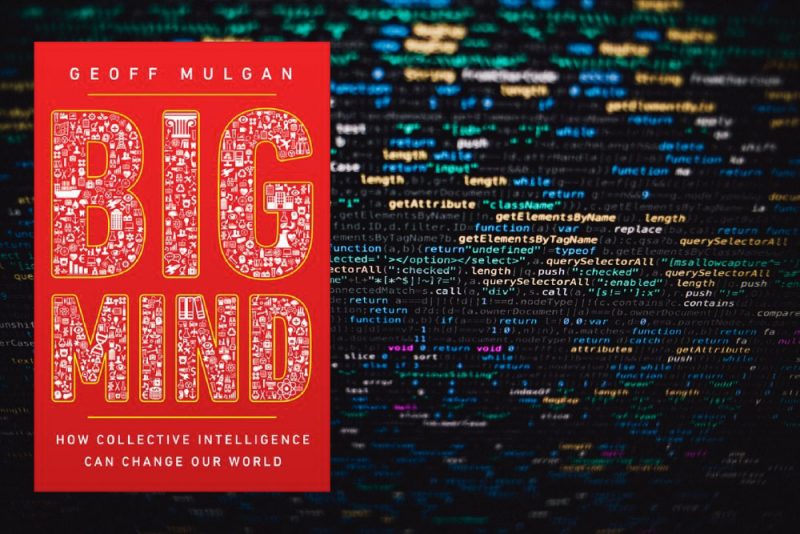Why do some organizations seem so much smarter than others? Can people think together (more) successfully in groups? How can technology help? In his book, Geoff Mulgan, chief executive of Nesta, shows how the answers can be found in the emerging field of collective intelligence, which links people and machines to foster substantial jumps in group intelligence.
The smarter outcome does not happen automatically; it must be carefully orchestrated. This is the role of the facilitator in a human group. When it comes to link Collective Intelligence with Artificial Intelligence Geoff Mulgan gives us a number of useful conceptual frames to support advances in the field.
In particular, he highlights a number of important dimensions of CI. These include:
- the functional capabilities of CI that are utilized and coordinated in context – observing, analysing, remembering, creating, empathising, and judging.
- infrastructures that are needed to support CI, including tools, methods, common standards and rules, and new institutions and networks.
- principles for organising CI work, in particular, autonomy, balance, focus, reflexivity, and integration for action.
- the three learning loops shaping CI applications, that is, using existing models to solve specific, pre-defined problems (loop 1); generating new models to support new learning (loop 2); and changing the way we think, including our epistemologies, ontologies, problem solving methods and tools (loop 3).
Emotional and relational intelligence are key for tomorrow’s leaders, if they want to connect with AI. Remember some functional capabilities such as observing, analysing, creating, and empathising.
Collective intelligence is an emerging field and it is important to understand that it doesn’t emerge by chance. Serendipity does, but is definitely more risky to count on it.
We believe we have to deploy our antennas for the upcoming CI-AI merge and be aware of its importance.
Didier
Source: Big Mind: How Collective Intelligence Can Change Our World, Geoff Mulgan, Princeton University Press, 2017, ISBN: 0691170797
 share
share 
